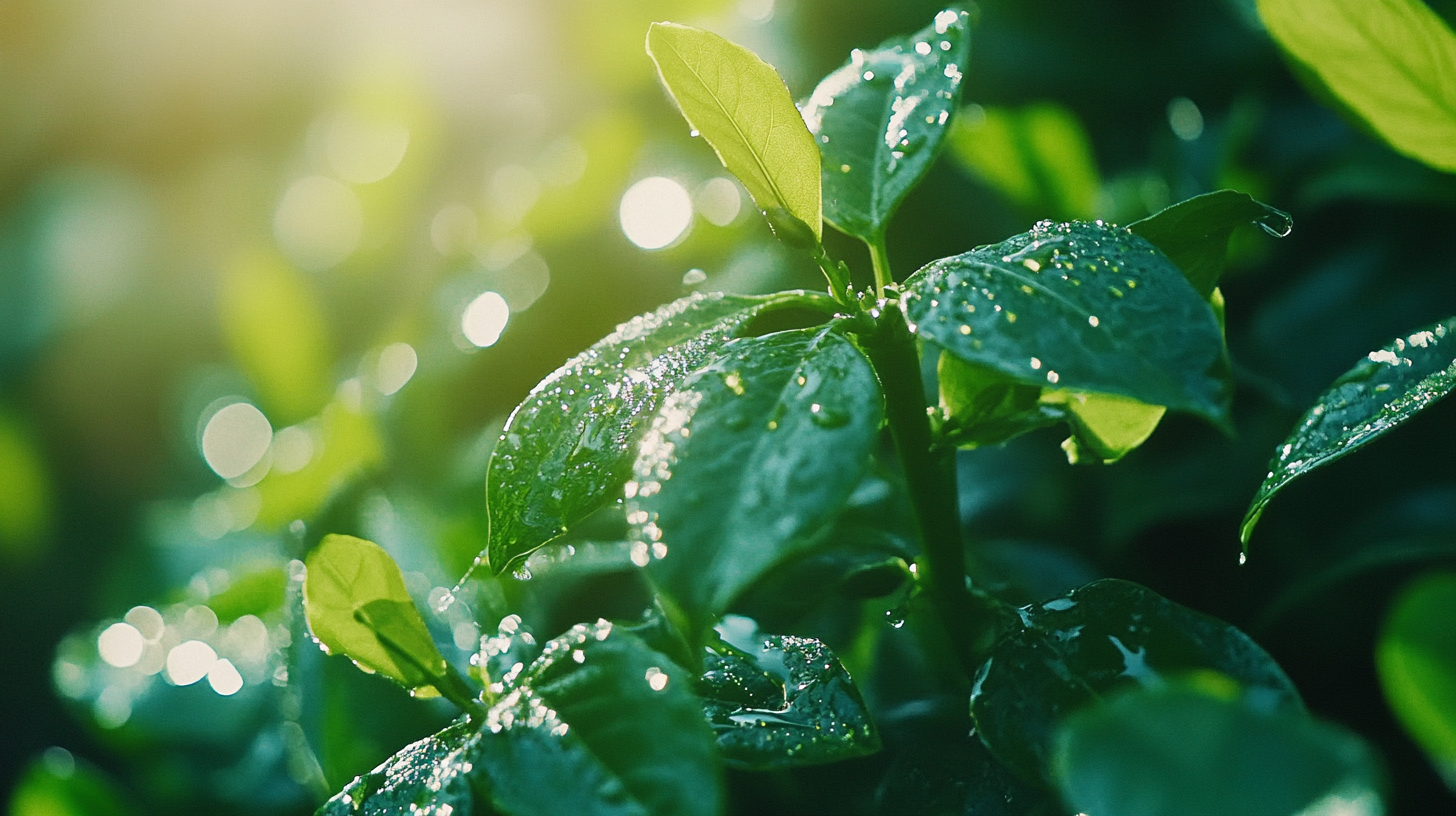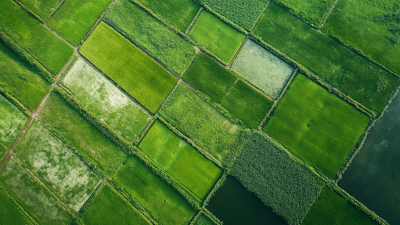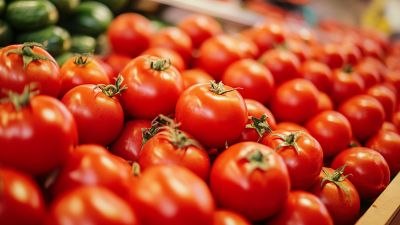 0551-68500918
0551-68500918 





Navigating the complexities of international certifications for trade is a vital way for companies offering Crop Protection Solutions to operate successfully. As agriculture develops, so does the need for innovative and safe pesticide products. Innovation Meiland (Hefei) Co., LTD. sees this as a challenge and is committed to the research and development of new Pesticide Formulations and processes that suit the various needs of farmers around the world. With its headquarters in Hefei, China, Meiland aims to improve agricultural productivity while ensuring compliance with international standards.
In this blog, we will discuss the various trade certifications affecting the research and production of Crop Protection Solutions. Understanding these certifications will assist stakeholders in traveling through the regulatory landscape, ensuring that products meet market needs but also fit into safety and environmental protocols. From our side at Innovation Meiland, our drive towards innovation and quality makes us the most credible source of effective solutions towards advancing agriculture worldwide.

Agricultural trade is more dynamic now than ever, especially with respect to certification-related trade that guarantees the safety and quality of crop protection solutions. There seems to be huge potential in the trade of green agricultural products from Brazil to China, especially as Roberta Aparecida Carnevalli of the Brazilian National Institute of Agricultural Research indicates China's gargantuan demand for raw materials in beans, corn, and sesame, as well as processed products such as meats and biofuel. For instance, nuclear technology is being used throughout Asia to strengthen food safety specifications, and this becomes all the more important in an age when animal diseases and crop pest threats commonly impact food supply and economic viability. Thus, not only do these layers of certification address safety, but they also attenuate the risks of harmful chemical residues on food that may emanate from some agricultural practices. On the international platforms, the market movements continue to incline toward organic. Consumer awareness and confidence are reportedly decisive to market growth. This willingness of the Eurasian Economic Union to set up mechanisms of mutual recognition for the organic products demonstrates that standardization is becoming affirmed as a growing need in an industry that has grown more complex because of so many certifications. Organic products have great prospects of being marketed, as stated by the Food and Agriculture Organization-their good marketing chances should, however, be further enhanced due to altering consumer preference patterns hinged on health and environmental sustainability concerns. The process of certifying and regulating trade on the global stage ensures that crop protection solves effective solutions and consequently promises sustainability for agriculture for the future, thereby establishing the need for detailed discussions on such key agricultural issues within trade conventions and forums exemplified by the recent U.S.-China Agricultural Trade Forum.

Increasing awareness at the global level regarding crop protection solutions is proving to be very important in safeguarding future food security and sustainability in agriculture. With an increasing population, crop protection will be the next line of high demand needed by a majority of the public. Present market trends indicate that Seed Treatments are enjoying rapid segment growth, driven by the emergence of new technologies and solutions that would be able to deliver increased yield while protecting crops from pests and diseases. This would generate business worth millions in terms of investments into both synthetic chemicals, as well as biopesticides, which will offer seed protection and seed enhancement.
Innovative technologies for application-including seed coating and seed pelleting-innovate the way such products are delivered to plants. These sophisticated techniques not only improve seed-use efficiency but also support better establishment and crop robustness. As the agricultural players move towards a more sustainable environment, this visible shift in preference for friendly products is seen in the Asian markets that now take a pole position in the chemicals market worldwide. The exceptional recognition towards biobased solutions exemplified by farmers who differ in cultivation to reduce chemical residue, which they see as otherwise maximal creativity efforts.
This exciting market spends much on research and development by companies in the field for new and better formulations designed to meet different agricultural requirements. These innovations are essential in achieving the desired sustainable farming practice as they continue to develop interactive chemistry in agriculture for solving global food issues.

International Certification remains ever so relevant for trade in crop protection products. On the one hand, they ensure consumer confidence in product quality and safety, while, on the other, they facilitate international trade by appearing legitimate under stringent standards. European Union Geographical Indications (GI) in themselves form another breed of certification with respect to which wine is the most popular category. GIs not only protect regional customs and traditions but also enhance the marketability of the products through different inherent specifications associated with their geographical provenance.
With the extension of global trade, countries are harmonizing their agricultural exports further with international standards. For example, Vietnam is promoting its organic agriculture at international exhibitions, reflecting its commitment to upholding recognized farming practices. Events, such as the Biofach exhibition, present Vietnam as a valid advocate of certifications cherished by global consumers interested in quality and sustainability. This preemption improves producer-market linkage and enhances the country's image as a reliable source of organic products.
Concomitantly, regarding agricultural quality and safety, China has instigated the branding of safety and high-quality products that include green foods and organic agricultural products. "Three Products and One Standard" are pillars of China's commitment to quality assurance, increasingly designing agricultural policies around certifications. These accreditations are another example of how international certifications are not only contributing to the standards of products but also building a foundation of consumer confidence leading to sustainable agricultural practices.

One necessary requisites for global companies dealing with crop protection solutions is wading through the complicated maze of global trade certifications for crop protection products. One of the largest impediments that these organizations face is differing regulatory obligations across countries. Each country has its own specific laws and guidelines that govern manufacturing, importing and exporting agricultural products. It, thus, causes confusion and eventually delays in the supply chain. But then, by knowing these regulations, it is not just compliance but how really offers assurance of safety and effective standards for products desired by patrons and authorities.
Therefore, the company spends time studying these regulations before entering a new market. It also requires to stay in touch with legislative alterations while keeping a good understanding of documentation for certification. Industries failing to do so may face fines, recalls, and shipment bans from a certain market. Gathering local expertise and working with regulatory consultants can be valuable efforts in demystifying requirements to speed up a certification process.
Collaboration with trade associations can also help companies understand best practices for compliance. Usually, these associations provide resources articulating updates on regulations and networking opportunities with various businesses on similar lines of challenges. In this way, organizations can develop ties in the industry, thus building on their understanding of the regulatory environment and influencing policies that affect operations in the future. Therefore, taking proactive steps and sound decision-making is crucial to successful operations in the global marketplace in this quickly changing environment.
The designed world of crop protection certification is most relevant to those businesses that wish to assure compliance or promote sustainability. When it comes to complying with the certification requirements, having an insight into the requirements of various regulatory bodies is essential for success. They mostly involve documentation and guidelines for chemical usage which differ significantly from one region to another. Important therefore is to ensure that companies have a thorough understanding of both local and international regulations so that surprises during the application process are avoided.
Another practice that finds merit in the crop protection certification process is to encourage interaction between industry experts and consultants. Engagement with experienced professionals helps identify potential pitfalls and strategic opportunities to expedite certification applications. Attending workshops and seminars is another venue to cast a wider net on best practices while providing opportunities to connect to peers with helpful insights and experiences.
Training of staff participating in product development and certification processes is vital. Annual upgrading sessions ensure that employees are current with methodologies and compliance updates. The advent of a well-informed group augurs well for a successful certification, demonstrating the commitment of the companies to the standards and sustainable practices.
Sustainable practices have become an essential part of the process of certifying crop protection solutions. As the world population is continually increasing and therefore necessitating an increase in food consumption, agriculture is being pressured to follow methods that can increase yields and still reduce the adverse effects on the environment. Certification is pivotal in forms that such practices are established and helps illuminate pathways for farmers and producers to show their commitment. Only the best standards ensure that their operations do positive contributions to the ecosystem and fulfil customer demand for greener products.
In fact, the most important element of sustainability in certification incorporates-the-aquatic-ecological-balance and resource conservation. The certifications cover important practices, such as Integrated Pest Management (IPM), which minimizes chemical use and maximizes promoting natural pest predators. These practices reduce application residues but are also biodiversity supportive. Hence, these practices mostly make sustainable certifications advantageous with an encouragement towards soil health in terms of practices such as crop rotation and cover cropping, which improve soil fertility and resistance to pests and diseases.
The popularity and significance of sustainable certifications shall increase significantly as consumers learn about their ecological footprint. They reveal that their products are produced through environmentally friendly and socially responsible methods and, thus, instill trust among consumers. Hence, companies committing here and putting themselves towards the acquisition of those certifications would, thereby, be the industry leaders and most successful in facilitating agriculture and the future toward more sustainable and resilient processes.
The prospects and challenges facing the stakeholders of the agricultural sector with regard to trade certification in crop protection at times are really high. Increasingly, with the rising population throughout the world, the state of food security brings up the requirement of having more effective crop protection solutions. However, when it comes to talking about the navigation of specific standards from different countries, and the regulations related to these, it can get tedious. Many times, from one country to another, there has been diversity in the types of certifications, making it harder for a firm to expand to a new territory or develop a new line of products. This means increased costs and delays in entry to the market, so today's businesses have no choice but to remain current and nimble in their approaches.
The flip-side of challenges of this nature also serves to ignite innovation and collaboration in a resultant industrial action. It is vulnerable to the competitive advantage of having reliable-compliant products designed for specific market needs. This encourages the formulation of new technologies and practices that fit well with international regulations, thereby improving product efficacy and sustainability. Most importantly, global trade creates a possibility for foreign and local firms to share knowledge and build partnerships, allowing them to learn from one another and adapt best practices towards improved strategies of crop protection around the world. By adopting the complexities of certification, the agricultural sector is turning possible hurdles into opportunities for future expansion and improvement.
Trade certification is increasingly important for the global provisions of effective crop protection solutions, when viewed in their dynamic interrelationship with agriculture. Due to the upsurge in agricultural exports worldwide, agricultural products must meet a variety of certification standards that encourage international trade. That is particularly true with the recent increase of specialty agricultural exports originating from Chengyu, China, to international markets such as Singapore.
Looking ahead, future trends in trade certification of agricultural products will stress an extensive, harmonized road. With soaring demand for raw materials and processed goods-this especially apt in the context of rising Chinese demand for soybeans and meat-certifications shall be increasingly oriented towards food safety, sustainability, and traceability. Most recent reports indicate that besides gaining product credibility, these certifications guide arrangements in trade1312612 relations against geopolitical tensions, very much in light of tariff impositions by the U.S. on China in recent times.
Additionally, building agricultural exports in congruence with international standards provides an area for innovation in trade practices. Cooperation projects, as evidenced by the recent Sino-U.S. Agricultural Trade Forum, highlight the increasing interdependence among nations in agricultural trade and the need for a common certification approach. Adherence to changing certification requirements will become imperative in targeting global and sustainable markets as demand for specialty agricultural products increases.
Global trade certifications are essential for ensuring the safety and quality of crop protection solutions, enhancing food safety, and facilitating international commerce.
Asian laboratories are using nuclear technology to improve food safety standards, which is critical in managing risks associated with animal diseases and crop pests.
The trend towards organic products is growing, driven by consumer awareness of health concerns and environmental sustainability, with the Eurasian Economic Union promoting mutual recognition mechanisms for organic certifications.
The expanding seed treatment segment is driven by the demand for innovative crop protection solutions that enhance yield and combat pests and diseases.
Innovations such as seed coating and seed pelleting are revolutionizing crop protection by improving seed utilization efficiency and promoting better crop establishment and resilience.
Companies face challenges due to varying regulatory requirements across countries, which can create confusion and delays in the supply chain, necessitating thorough research and compliance.
Companies can navigate regulatory hurdles by researching specific market requirements, engaging local experts, and collaborating with trade organizations for resources and best practices.
Research and development are critical as companies invest heavily to create new formulations that meet diverse agricultural needs and contribute to sustainable farming practices.
The shift is evident as companies and growers aim to minimize chemical residues while maximizing efficacy, especially in markets increasingly focusing on sustainability.
Industries that do not comply with trade regulations may face fines, product recalls, or bans from certain markets, highlighting the importance of understanding compliance requirements.





